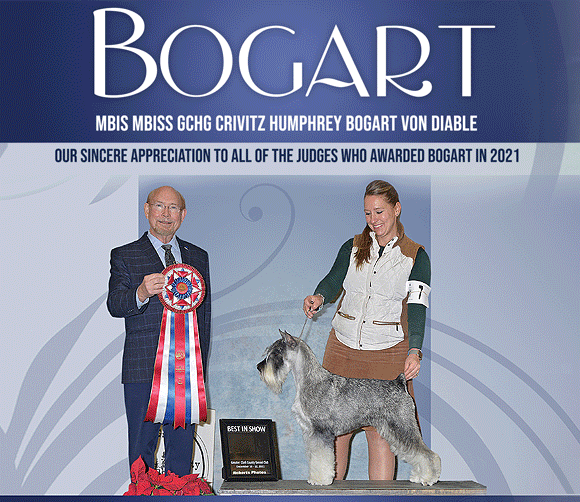LEARNING TO LOSE GRACIOUSLY, An Investment in Winning

From the archives of The Canine Chronicle
Click here to read the full article in our digital edition.
by William Given
Unsportsmanlike conduct is all around us and it is seemingly spreading like a virus. This morning I read another story in the news about a youth sporting tournament put asunder due to poor sportsmanship. It started with the adults, parents and coaches, then filtered down to the children. As a result, the police were called in to diffuse the situation and restore order. The article indicated that “the players returned to their homes with no championship trophy or tournament medals, but instead, they took only the memories of their unsportsmanlike conduct.”
I can’t help but cringe every time I read such an article or see it on a television news broadcast. It seems the level of unsportsmanlike conduct and incivility to others continues to grow all around us in our society. Poor sportsmanship does not just manifest itself at youth sporting events. Think of all the incidents of road rage where anger and frustrations quickly escalate. Poor sportsmanship can also lead to people cheating to get ahead or being dishonest in their business dealings.
Stories of poor behavior do not seem to surprise us anymore. You can’t help but ask “where do people learn to act the way they do?” I believe the answer is “in the home.”
I believe that virtuous behavior needs to be taught in the home. And while I do not want to trivialize any incident of poor sportsmanship, I suggest that you have to learn to lose graciously in order to learn how to win.
There’s something counterintuitive about competing: You have to learn how to lose in order to win. How can that be? It doesn’t make sense. That sounds contrary to common sense.
The Art of Letting Go
Winners hate to lose, I do. But I’ve learned that if you compete at anything, especially dog shows, you are going to lose a good portion of the time. So you had best learn how to handle it. Trust me, if you do not learn how to cope with a loss and put it behind you, it will haunt you to the point that you will not be able to win.
Let us say, you have been on a good winning streak with your ring partner. You have been placing at or near the top, consistently. Then suddenly in one weekend, you find yourself at the bottom of the pack. Maybe you messed up. Perhaps your dog did. It is okay to get angry about it. It is okay to be sad over it. You have to keep it short and to yourself, then put it behind you and get back on track.
Time and time again, I have seen juniors finish out of the ribbons at 9 o’clock on Saturday morning and they are still sullen when walking into the ring on Sunday. You have to learn to let go of a loss. You cannot afford to drag it around behind you like a millstone or it will adversely affect your performance.
You cannot change the past. It’s done, finished, over. Focus instead on the future, you can have some influence there. Also, I want you to remember that with something as subjective as junior showmanship you do not have to make a mistake and your dog does not have to mess up to finish out of the ribbons. It is quite possible that your competitors just had a better than average performance. On this day, they excelled. Be okay with that. Sometimes it is just as important to be lucky as it is to be good.
A Change of Focus
It is good to learn from a mistake. I truly believe that. But if you obsess over it, you will create a vicious cycle. Here is a common scenario. I’ll use setting up as an example. On the first day of a show, your dog moves his feet just as the judge walks up, you’re not quite prepared for it but you place his feet back into proper position as quickly as you can. Going into the second day, all you can think about is, “He’s going to mess up and move his feet again when the judge walks past.” And guess what? He does.
By dwelling on the negative, you practically made it happen. Instead, shake it off! Go jump on your bed and turn your music up loud. Have a pillow fight with a sibling or best friend. Do something so that you can release the beast. Then turn your focus off what happened in the past, and focus on having an outstanding performance tomorrow.
That is the difference between winners and losers. Losers dwell on yesterday’s loss. Winners focus on tomorrow’s victory.
Winners want to win. I absolutely want to win every class I enter. I hate losing but I have had to learn to live with it, a lot. You may want to punch a hole in the wall because you lost a class, but that is not going to change the fact that I lost. And then you have to fix the wall. You have to shake it off and go win the next time.
You can actually turn a negative outcome into a positive one by using a loss to energize your will to win. Review in your mind those things you did right, fix those things that went wrong. Go do your best in the ring and be prepared to win. By using these strategies, over time, I have seen young people learn how to lose graciously.
1. Set the Example
Good sportsmanship is learned. Parents who love and care are quick to set an example and take the time to teach virtuous traits. A good parental example encourages emulation, while a poor example gives license to children to disregard the parents’ teachings and even build upon the poor example.
If you are a poor sport or have a hard time losing, then your attitude will surely show through. So the best way to learn good sportsmanship is to live it. Give your opponents the priceless gift of a good example.
2. Joy is in the Journey
Life is not about your destination, it is about the journey. Make it a good one.
You have already faced many disappointments along the road of life. When you were a young child those disappointments came several times a day. You had a subject you did not like at school, or you had to take a quiz or test you failed to study for. You had homework when you would have much rather spent the time playing with your friends. You had something for dinner that you did not particularly enjoy. And a lot of times, your day ended in disappointment because you had to take a bath and go to bed.
You are sure to suffer many more disappointments in life. It will take repeated reminders, but learning that the fun is in the activity rather than the outcome will go a long way in learning the proper perspective about disappointments.
3. Cool Down
A cool down period will also go a long way in helping to settle your mind about losing. However, occasionally when left completely on their own, young people may continue to huff and puff and escalate the loss in their minds. I have found that a cool down period is good as long as you give yourself something positive to think about during the cool down period – such as thoughts of the fun shared with your ring partner. Another thing that appears to be very successful in helping young people cool down is music. Music can do wonders to help set a good mood.
4. Winning Gracefully
Equally as important as learning to lose gracefully is learning to win gracefully. Nothing can set off tempers quite like a competitor gloating in your face. If you are already upset and someone does a victory dance in front of you, then the volcano can easily erupt. Good sportsmanship goes both ways and it is just as important to learn how to be happy for a victory without being a poor sport.
5. Prepare in Advance
Good sportsmanship has a lot to do with being polite. Learning proper dog show etiquette will have a big effect on learning how to win gracefully. Do not wait until you walk out of the ring to think about winning and losing. It is good to think about acceptable behavior before the show even starts. Helping to set the stage properly can make for a better experience overall. Let everyone know that you are in the ring to have an enjoyable time with your dog. Tell your ring partner that what you like is spending time with him. Someone will win and others will not but that’s okay because that is not why you are really there. You just want to do your best and you hope you get better each time you show.
6. Practice Makes Perfect
Practice makes perfect, right? Not necessarily. The legendary head coach of the Green Bay packers, Vince Lombardi said, “Practice does not make perfect. Only perfect practice makes perfect.” His premise being that you play like you practice. If you just spend time practicing by going through the motions, then just going through the motions is what you will do in the juniors ring. Your practice has to be planned, focused and goal-oriented. If it is, then you will be focused and goal-oriented inside the ring and your chance of success is increased.
Can you really attain perfection? Not likely, but you can achieve excellence. I am certain that every young person competing in junior showmanship can become better, much better, with focused practice. Did your first bike have training wheels? After your father removed the training wheels, did you fall off? I did, and my father was there to tell me I had to get back on and give it another try. I seem to remember a short break to take care of skinned palms, as well as a skinned knee and elbow. He did not allow me to end the day on a failed attempt. Maybe you failed to succeed at something on your first try and one, or both, of your parents would not let you quit. Maybe you had to make several attempts or many but you did achieve success. If you never thanked your parents, tell them now. It will serve to let them know you got the message.
The basic premise is that if you make a mistake or initially fail at something, then you need to try again. You can always get better.
7. Praise the Positives
Accepting Praise
When other people praise you, accept it with a slightly surprised thank you. Do not be arrogant or show that you expected to be praised. Nor do I want you to be excessively diffident and refuse to accept the praise. Nor should you downplay your accomplishment. Just say, “Thank you. That is very kind of you to say that.”
Giving Praise
Give praise assertively and make it heartfelt. Be specific about what the other person has done in achieving their victory. Try something like, “Jane, I really like the way you handled your dog this morning. When your dog moved out of position, your reset was quick and smooth and the judge really noticed your effort.
Praise is a powerful motivator and a little can go a long way. It acknowledges an individual’s effort and increases a person’s sense of worth. It also tells them what they are doing well. Generally, people will do more of the things for which they are praised, but only as long as they believe that they deserve the praise and that it was genuinely offered and without ulterior motive.
Weak praise can sound like empty flattery rather than genuine praise. If you give praise when it is not really deserved, then you make worthless any praise that is deserved. Aggressive praise can sound like sarcasm that seeks to diminish the other person’s success. It often occurs when one person realizes that the other person has done a really good job but rather than truly admiring the other person, the individual feels threatened and sees their own limitations.
Here are some closing thoughts on winning and losing. It is okay to lose – it happens to all of us who compete in the sport of purebred dogs –?as long as we learn from our mistakes. I do not enjoy losing; I never will and I do not expect you to learn to like it either. It takes a lot of work to win and win consistently, but it is so worth the effort. Please remember that having fun with your dog in the juniors ring is also part of what junior showmanship is all about. If your ring partner is having fun with you and you are having fun with your dog, you really haven’t lost anything. Have you?

Short URL: http://caninechronicle.com/?p=222937
Comments are closed












